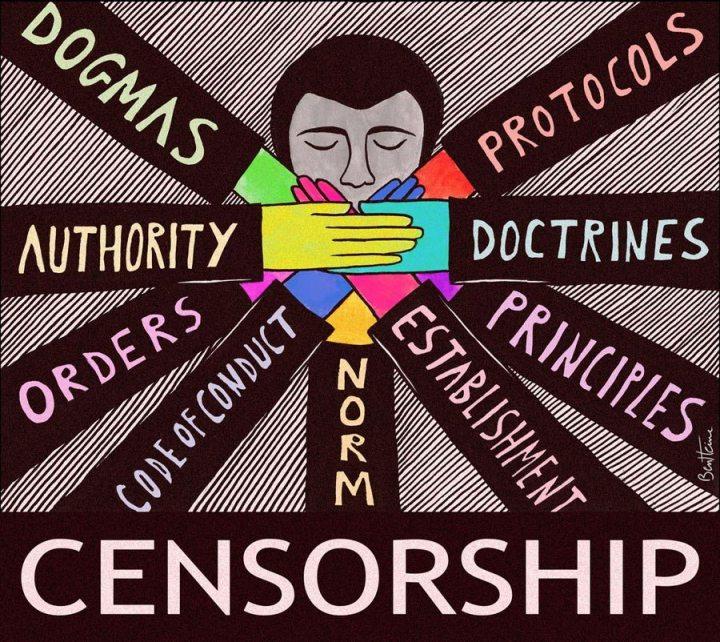Aussie Academic: ‘Ethically Misguided & Downright Dangerous’ NOT To Censor Climate-Deniers
Authored by Eric Worrall via WattsUpWithThat.com,
University of Melbourne “Centre for Advancing Journalism” academic Denis Muller believes climate censorship should be added to legally binding journalistic professional codes of conduct.
Media ‘impartiality’ on climate change is ethically misguided and downright dangerous
January 31, 2020 6.11am AEDT
Denis Muller
Senior Research Fellow in the Centre for Advancing Journalism, University of MelbourneIn September 2019, the editor of The Conversation, Misha Ketchell, declared The Conversation’s editorial team in Australia was henceforth taking what he called a “zero-tolerance” approach to climate change deniers and sceptics. Their comments would be blocked and their accounts locked.
His reasons were succinct:
Climate change deniers and those shamelessly peddling pseudoscience and misinformation are perpetuating ideas that will ultimately destroy the planet.
…
But in the era of climate change, this conventional approach is out of date. A more analytical approach is called for.
…
Harm is a long-established criterion for abridging free speech. John Stuart Mill, in his seminal work, On Liberty, published in 1859, was a robust advocate for free speech but he drew the line at harm:
… the only purpose for which power can be exercised over any member of a civilized community, against his will, is to prevent harm to others.
It follows that editors may exercise the power of refusing to publish climate-denialist material if doing so prevents harm to others, without violating fundamental free-speech principles.
Other harms too provide established grounds for limiting free speech. Some of these are enforceable at law – defamation, contempt of court, national security – but speech about climate change falls outside the law and so becomes a question of ethics.
The harms done by climate change, both at a planetary level and at the level of human health, are well-documented and supported by overwhelming scientific evidence.
…
External guidance is nonexistent. The ethical codes promulgated by the media accountability bodies – the Australian Press Council and the Australian Communications and Media Authority – make no mention of how impartiality should be achieved in the context of climate change. The Media, Entertainment and Arts Alliance’s code of ethics is similarly silent.
These bodies would serve the profession and the public interest by developing specific standards to deal with the issue of climate change, and guidance about how to meet them. It is not an issue like any other. It is existential on a scale surpassing even nuclear war.
…
The problem with comparing discussion of climate change to shouting “fire” in a burning theatre is one of immediacy.
Shouting “fire” to create a fake panic in a movie cinema is punishable, because it has been amply demonstrated through experience that creating a fake panic causes immediate, measurable harm; we know through observation of past events that people can be hurt or even killed during the resulting stampede.
But a public comment disputing alarmist climate claims; not so much.
The author’s comparison of climate change to an imminent nuclear war is absurd. Climate change is a gradual process, with significant changes taking decades or even centuries to manifest.
Even if climate skeptics were totally wrong, there is no justification for shutting down our right to be wrong. Unlike shouting “fire” in a crowded theatre, no single climate “shout”, no matter how wrong, has the potential to alter the trajectory of society to such an extent that measurable harm could be ascribed to it.
If society lowers the bar of censorship to such an extent that publicly supporting a position which might be wrong but which causes no immediate harm qualifies as a punishable offence, then we have lost more than our right to free speech.
Tyler Durden
Sun, 02/02/2020 – 21:20
via ZeroHedge News https://ift.tt/2UjPes5 Tyler Durden
